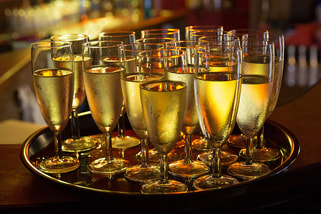 Holiday prix fixe menus. Celebrity chef takeovers. Special pop-ups. Weekly, monthly and quarterly special menu pairing dinners. Each of these novelties present tremendous value in its own right, especially in generating buzz amongst the foodie community, but are any of them right for you? These events require equally tremendous investment toward planning and, in some cases, funding. So, are they worth the cost? In order to determine whether a special event is worth your while, ask yourself the following questions:
Once you have a solid grasp on your goals and vision behind the event, it’s time to plan out the logistics necessary to make the event known and run smoothly for all guests and staff involved. Train your kitchen staff. "Think of it like planning a wedding: you’ll want a save-the-date, an invitation and a few periodic updates leading up to the big day" Execution is critical in these kinds of special events, especially considering that they often demand higher prices and attract hypercritical guests. If you have any new recipes, be sure to dedicate several days to training your kitchen staff in preparation, plating and service of these dishes. If taste, presentation and timing are critical in an ordinary restaurant setting, they are several times more important in special event settings.
Set up and decorate accordingly. You want your restaurant to look different during a special event. At a minimum there should be signage at the entrance and collateral on the tables that speaks to the event. From there, the more different the event is than your usual service period, the more different the venue should look. Rearranging tables, new place settings and décor are common considerations, as are novelties such as DJ booths and stages, where various stakeholders can make announcements. Spread the word in advance and often. Start your marketing efforts at least three months before the event is set to take place. Target your loyalists first, to both get them onboard and assess any commentary on their end—your customers likely know your brand better than you think, and upon hearing about a special event they could provide useful insight to improve the event offerings. After your loyalists, including messaging on your existing social media, email and other in-house channels, targeting those in your community that would be most receptive to the event. If you’re doing a menu pairing, then perhaps a partnership with the local wine club is in order. If a celebrity chef is coming in, then an arrangement where they post to their channels is essential to your event’s success. Be mindful that the initial blast is just the first step. Continue messaging to your target audience on a regular basis, increasing frequency as the event draws closer. You don’t want to bombard them, of course, but rather gently remind them every so often. Think of it like planning a wedding: you’ll want a save-the-date, an invitation and a few periodic updates leading up to the big day. Bring it back to the experience. Experiential marketing is certainly on the rise, and in the case of restaurants it kills two birds with one stone. Special events allow new and different people to come in and experience your product in a distinct way that directly links back to your business. These events can be carried out independently or as part of a series, but should be spaced out far enough so that each one feels special in its own right and doesn’t detract from your core business. Limitless event opportunities exist, and serve as valuable assets so long as they align with your individual goals.
0 Comments
Leave a Reply. |
AuthorBenjamin Brown is a seasoned restaurant writer and hospitality consultant, serving up SoCal's hottest food news and reviews. Categories
All
Archives
June 2021
@Foodie_Biz |
|
Home
About
Blog
Consulting Tips
Contact
Legal
|
Foodie Biz provides restaurant news and reviews for the food community, as well as consulting advice for restaurant owners and other hospitality professionals.
Contact Foodie Biz for media opportunities and freelance consulting projects. Contact Foodie Biz |



